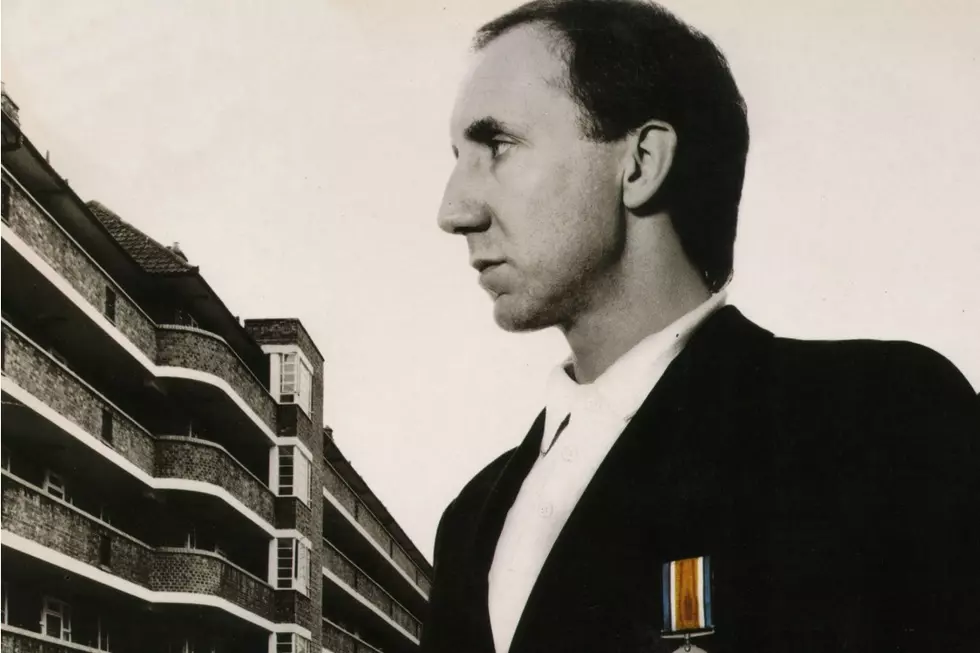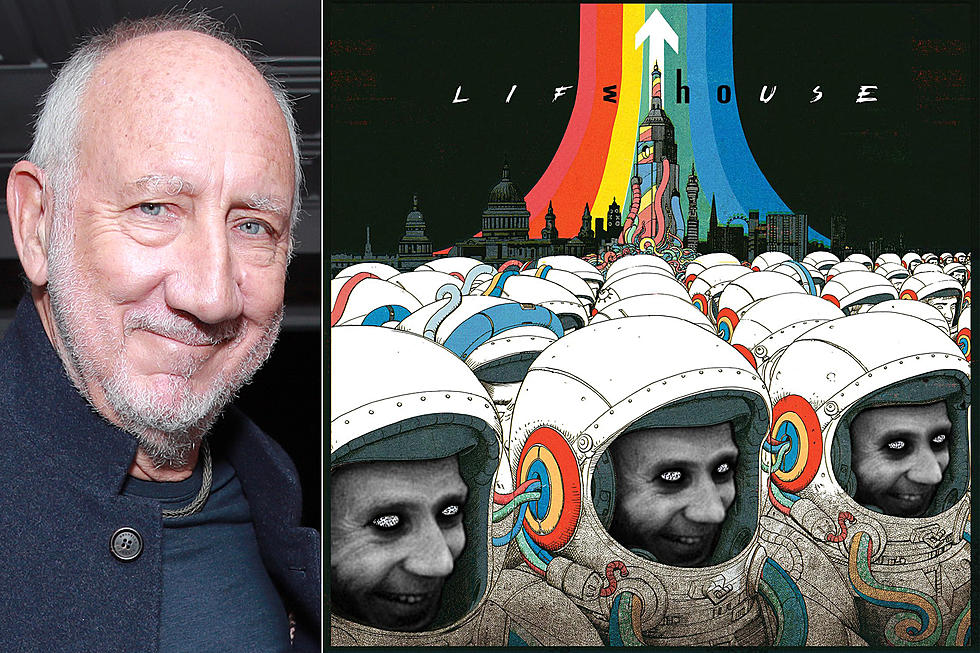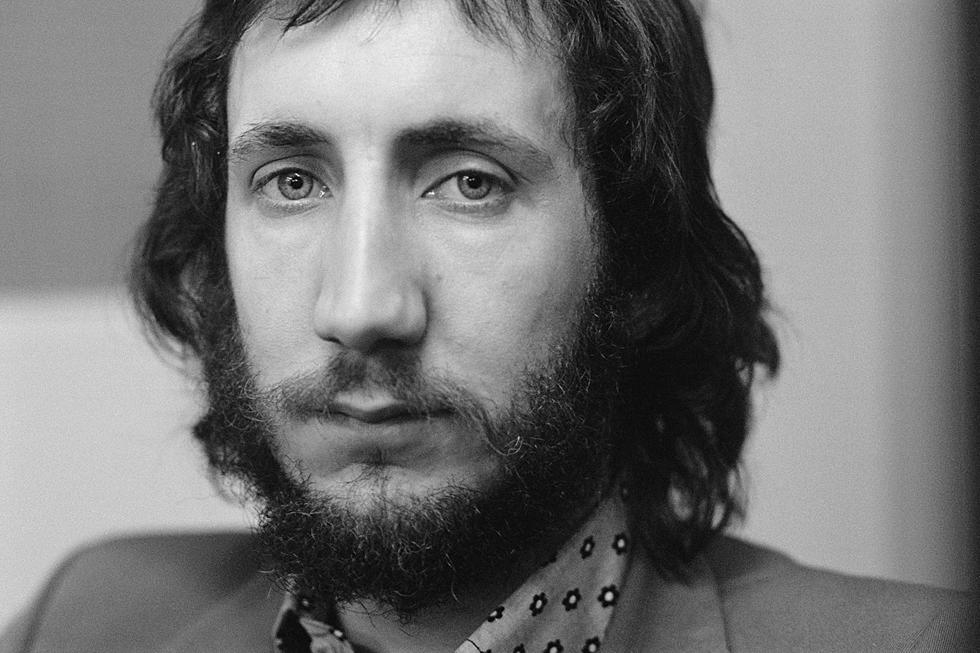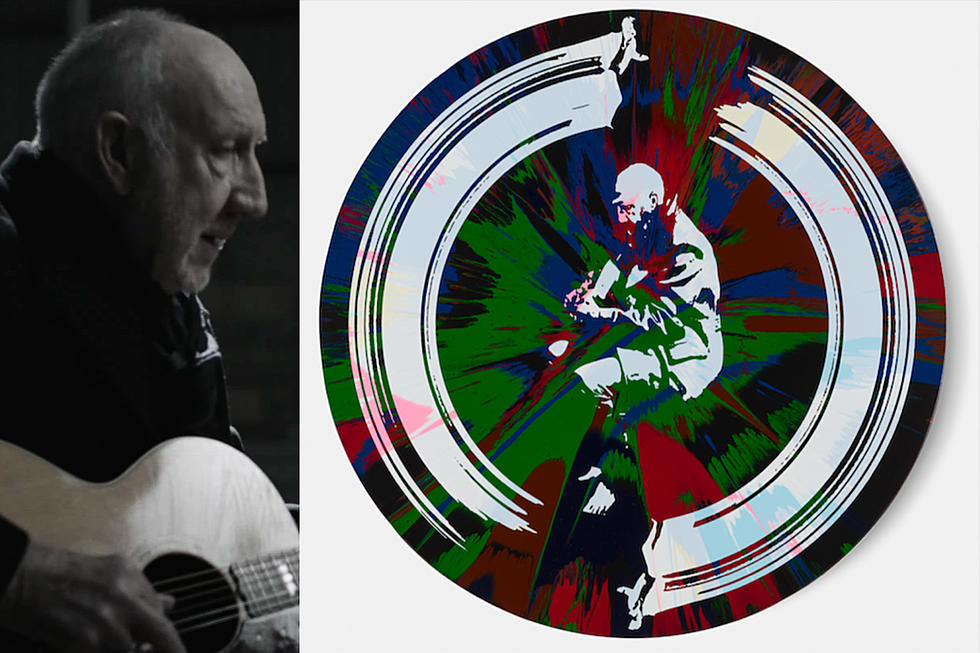
When Pete Townshend’s ‘White City: A Novel’ Mixed Film and Music
MTV has often been accused of promoting style over substance in rock 'n' roll, but the video era also opened a new avenue for artists whose ambitions extended beyond the purely musical — like Pete Townshend, whose November 1985 solo effort, White City: A Novel, took full advantage of the burgeoning medium.
Townshend's fans were already well acquainted with his affinity for big ideas — and even though the concept album had become something of a joke during the overblown end of the prog era, Townshend had built listeners' trust with the major works he'd assembled with the Who. If rock listeners had largely moved on from albums that tried to tell stories through song, they still knew not to dismiss one out of hand from the guy who gave them Tommy and Quadrophenia.
Still, not all concept albums are created equal, and with White City: A Novel, Townshend was attempting to get across a dauntingly complex collection of themes and messages, some of which might have been beyond the grasp of even the most brilliant composer. On the surface, he was telling the autobiographical story of his upbringing in the titular West London borough, but those details were really just the connective tissue for a song cycle that tried to tackle everything from gender roles to racism.
"Originally I was going to call it The Tragedy of the Boy," Townshend told Spin. "With the advance of feminism in western society and with women's capacity to have children and bring them up, women can shape the future. I don't object to feminism, but I think men should have a version of it for themselves."
Further untangling the idea that "sexuality is a component in the nature of freedom," Townshend continued. "Throughout history, men have satisfied the drive to create and control by leading, writing, and governing. Men gained power through traditionally rewarded acts of heroism, self-sacrifice, and at the most mundane level — and to this day the thing we find hardest to let go of — by doing a hard day's work and bringing home the money. There are so many men who are unable to do that now, and it's backlashing against society in a monumental way."
Those ideas were brought to visual life with White City: The Music Movie, an hour-long film directed by Richard Lowenstein — then in the midst of a long series of videos for INXS. Townshend, who's essentially playing himself, meets up with a pair of old friends whose marriage is in trouble. Their relationship is initially portrayed as the victim of declining standards of living in White City, but the truth — as it so often is in Townshend's best songs — is more complex.
Listen to Pete Townshend Perform 'Give Blood'
It's a lot to ask a nine-song album to communicate, but White City had more on its mind than the effects of economic decay on relationships and gender norms. As he went on to tell Spin, Townshend was also trying to get across the idea that violence is a currency men are often asked to expend in order to demonstrate their own manhood — and a tool they're punished for turning to when they feel they don't have any options left.
Put another way, in Townshend's eyes, White City's overarching theme explored the way society encourages violence on the one hand while punishing it on the other. Describing his work with battered women's shelters, he argued, "Domestic violence is often the last resort of men who are lost and emasculated. The popular solution is to separate men from wives and children because society refuses to tolerate violence in the home. Yet for millions of years violence has been the way we've run our countries and protected our causes."
To Townshend's credit, he wasn't overly didactic in his attempts to get these ideas across with White City — but as a result, the record didn't really hang together conceptually as tightly as, say, Quadrophenia. With singles like "Give Blood" and "Face the Face," Townshend offered listeners tuneful examples of a songwriter staking his claim as a solo artist after the breakup of the Who, but the lyrics were open to interpretation to the point of being vague. It wouldn't be fair to say his reach exceeded his grasp here, but he needed to give himself more room to explore his ideas; instead of nine songs, White City could easily have filled a double album.
Yet if White City isn't quite the statement it could have been, it at least demonstrated Townshend's continued willingness to dig deep and test his limits as an artist, and suggested he was more interested in stepping out of the Who's shadow than relying on his legacy with the band as a stepping stone to solo glory. It also emerged during what ended up being a fairly fertile creative period, during which Townshend also served as an editor for the Faber and Faber publishing house — a job that would end up indirectly inspiring his 1989 album The Iron Man: The Musical.
Ultimately, White City also found Townshend — as he had for much of the Who's most commercially successful years — trying to channel rock's power as a means of doing something more lasting and impactful than simply making noise. He's made waves in more recent years by admitting he no longer finds fulfillment in performing Who classics, but he's been ready to close that chapter for quite some time — and for at least a little while, he felt like he might have found the next one with White City.
"An aspect of White City that I'm quite proud of is that for once in my life I'm talking about things I know as opposed to expressing opinions as an observer. These aren't opinions. White City is a statement of facts — and they're facts I'm already doing something about," Townshend told SPIN. "When I wrote 'Won't Get Fooled Again' ... each power chord was another promise. But all it really promised was that there would be another power chord very close behind it. And in the end everyone looks around and says, 'Hold on a minute! When are we gonna get the goods?'"
Pete Townshend Albums Ranked
Why the Who's Drummer Invited Fans to Moon Him
More From Ultimate Classic Rock









